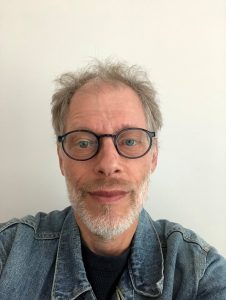In this post we are very happy to present our keynote speaker for the first day of the conference, Anders Conrad, DeiC.
Anders will present his keynote speach, Implementing FAIR – core pillars in national and international initiatives translating principles into action, at the LU Open Science Days on the 20th of November. In preperation for the conference, we have asked him three quick questions about his engagement with open science.

Hi Anders! How did you first become engaged in open science?
Anders: I used to work at the Royal Library in Copenhagen, where I was gradually pulled into working with repositories and research infrastructures. Such projects were practical attempts to deal with technical and legal barriers for open access to scientific content, e.g. across borders. In a library context, these efforts were closely related to efforts to secure public access to research objects. For me this gradually took me into data management and FAIR which is one path towards opening science to broader parts of society.
Open science covers many things and practice, of all the things that can be encompassed in the notion of open science what is the most urgent one from your perspective?
Anders: In the field I am working in, we claim that making different kinds of research outputs FAIR and (more) openly accessible will benefit research, both in terms of efficiency and ability to ask new research questions. I think there is an urgency to produce a sufficient amount of open data across various disciplines to be able to substantiate such claims. So that moving towards open science will not be seen as just another burden and cost for researchers, but start offering benefits in the near future.
Looking forward, how do you envision the future of open science?
Anders: Let me mention AI as one of the big jokers of the moment. I think AI will potentially have a much stronger impact on research than just being another tool, as some people claim. AI could introduce great opportunities, but could also result in great challenges for data management. How do we for example secure data integrity, documenting data provenance, and transparency about how AI systems were trained? I would hope that open science and FAIR could be part of the solution to such challenges.
